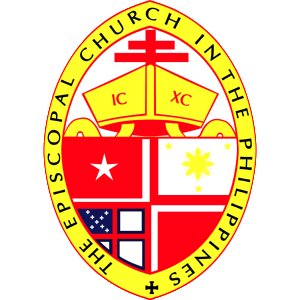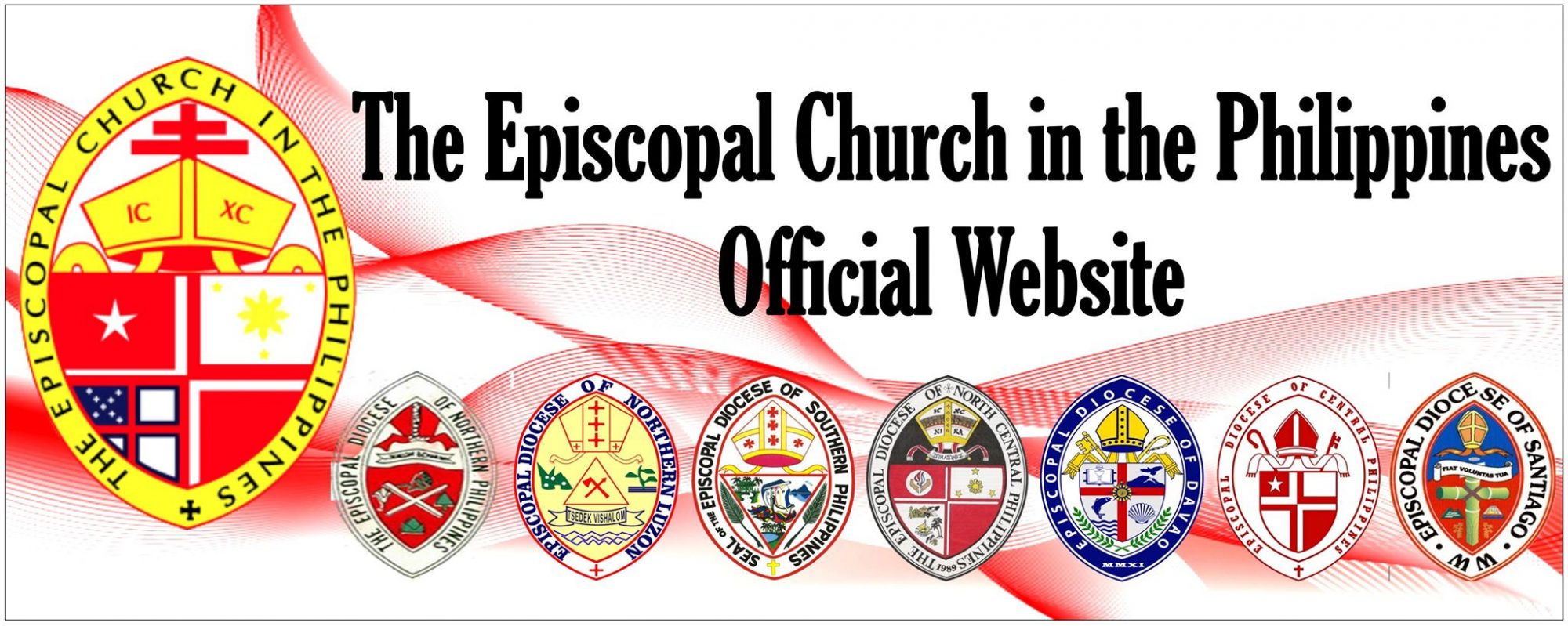The PASASALAMAT
In brief: The Pasasalamat Program holds as its forerunner, the United Thank Offering Program (UTO) of the Episcopal Church in the Philippines and of the Episcopal Church in the United States of America. With the autonomy of the Phil. Church established in 1990, a gradual separation of the programs occurred. By year 2003 as the Philippine mostly on the principles of the UTO, was launched as a shared program with the Philippine Episcopal Church.
The Pasasalamat Program in support of the Vision and Mission of the Episcopal Church in the Philippines rests strongly on the concepts of DAILY PRAYERS AND THANKSGIVING OFFERINGS, on united offerings, autonomy, renewal, self-reliance, partnership, and service. It encourages the participation of every man, women and child in their homes and churches within the Episcopal Church in the Philippines. Management of this thanksgiving participation is under the auspices of the ECW.
Pasasalamat services are held twice a year in each church/parish. The Lenten In-gathering service is done amongst the ECW, while the entire church/parish is expected to observe Pasasalamat Sunday every Third (3rd) Advent Sunday in December (by virtue of an Action of the ECP Executive Council). The usual practice of an ECW Pasasalamat Advent In-gathering service is incorporated within this whole church Pasasalamat Sunday. Likewise on a wider scope, Pasasalamat services are held during the ECP Synod (every 3 years) and during each ECW Diocesan and Triennial Conventions. General ECP Diocesan Conventions also are urged to promote this program of thankfulness and prayers by including a Pasasalamat Service within the convention schedule; though it is to be noted gratefully that most Dioceses already are practicing this.
With Pasasalamat being a shared program with the National Church, the Pasasalamat Committee membership includes a representative from the National Executive Council of the church. while the Committee exercises a limited measure of autonomy in its decision-making and maintains its own system of guidelines and operations in cooperation with the Diocesan churches and the National Church, all reporting to the National ECP Executive Council is done through the National ECW Board which earlier would have confirmed all Committee Actions.
All pasasalamat offerings are to be submitted regularly but not later than the December 30 of the offering year to the Diocesan Finance Office which in turn shall remit the same to the National ECP Finance Office no later than January 15 of the following year. This collection of offerings form part of the Project Fund which is allocated annually for diocesan projects in January by the Pasasalamat Committee.
Diocesan Pasasalamat grants must be used for the approved project within the year of the receipt of fund. On or before December of the grant-receipt year, a report on the use of the grant fund and the completion of the project with photos included needs to be submitted to the Pasasalamat Committee; otherwise, the succeeding grant shall be put on hold and not released until the submission of the report.
THE FELLOWSHIP OF THE LEAST COIN
The Fellowship of the Least Coin (FLC) program is under the auspices of the CWUP. This is the ECW\s participation in the worldwide ecumenical movement of women committed to live a reconciled and forgiving life. As a symbol of one’s commitment, one puts aside in a collection jar or container the least coin available to her at the moment she attends to her daily prayers for peace, justice, reconciliation, and other concerns for a fellow-woman. These least coins are then offered during an appropriate annual service of peace and love for women, held in the month of September. The collection is then sent through the Diocesan ECW and the National ECW to the CWUP and thence to the International Committee of the FLC in Switzerland, who then allocates various amounts from the global fund as “Gifts of Love” for areas suffering from calamities or for projects focused on the upliftment of women. “Prayer” not money has been and always is the primary concern of this prayer movement.
Interestingly, this program was founded in the early 50’s after the World War II, some U.S. based Presbyterian ladies traveled to and through Asia to minister to the women who were victims of violence, hate, and grief from the war. At one point in their journey, Shanti Solomon, an Indian lady, was denied entry into Korea to wait for her companions. It was during one of her meditations in the Philippines that Shanti Solomon conceived of this prayer movement for disadvantaged and despondent women made victims of conditions not of their own making.
The Philippines through the years had been a recipient of FLC’s annual “gift of love”. The Abiertas House of Friendship for unwed mothers established in Manila in the 1960’s is one big visible gift. Some other gifts to the Philippines include at least two orphanages, the rehabilitation of communities affected by the Mt. Pinatubo eruption, and much later for the typhoon-ravaged Tacloban families. In 1984, FLC International sent US$6,000 to the Philippines for the work of the women in the rural areas. Php5, 000 was the share of Episcopal Church Women and this was shared equally by the 4 ECW bodies then: National, EDCP, EDSP, and EDNP. The amounts were used to augment each group’s Project Fund. At some later year, a US$5,000 share was provided the Episcopal Church ECW from s substantial FLC “gift of love” to the Philippines to uplift the plight of women. At the National ECW level, this was invested in the name of the Educational Revolving Fund, the Return of Investment (ROI) of which is shared equally by all the diocesan ECW on triennial basis: the sharing expectedly is to augment the diocesan ERLFund. The latest sharing with the Episcopal Church Women was during the Typhoon Ondoy disaster in the year 2012; the Php10, 000 share of the ECW was given to the Buguias deanery.
On the Fellowship of the Least Coin (FLC) Collection
- Septembers the FLC month when one’s daily prayers and “least coin” collection is offered at a Chapter’s FLC Service
- The Chapter collection is then submitted to the ECW Diocesan Treasurer who shall then submit it to the National ECW Treasurer on or before December 15 of each year.
- The National ECW Treasurer through the National ECW Representative shall then submit within the first quarter of the succeeding year the ECP FLC Collection to the Church Women United of the Philippines (CWUP) who is responsible for the annual submission to the International Committee for the FLC (ICFLC) in Geneva, Switzerland.
- The ICFLC meets annually to allocate funds in solidarity and in support of women concerns around the world. Whenever the Philippines happens to be a recipient, the gift is usually shared equally by all the CWUP church organization members.
As mentioned earlier, through this program, the National ECW in the 1990’s received a US$5,000 grant for the education of women. By that time, each Diocesan ECW already was managing their own Girl’s Scholarship Fund. Hence, the FLC grant decidedly became the seen for an Educational Revolving Loan Fund invested with the National ECP Finance Office and monitored by the National ECW Board. Every three years of triennially, 90% of the Return of Investment is shared equally by all the Diocesan ECW to add to their own Educational Revolving Fund managed in accordance with their own Diocesan ECW policies and guidelines geared towards education for women.
The World Day of Prayer
The International World Day of Prayer for Women is one ECW activity that it linked worldwide. This is observed annually on the first Friday of the month of March. An ecumenical body determined the themes each year and focuses the service and prayers usually around a particular country of women’s group. For the Philippines, this is under the auspices of the Church Women United of the Philippines. CWUP determines and share the Philippines adapted prayers/service based on the annually prescribed international theme and service. In most areas, the different CWUP member-churches takes turns in hosting the World Day of Prayer for Women service and fellowship gathering, thus bringing together all the women in prayer and unity for this ecumenical event. Each Churchwomen’s group is responsible for designating their own Coordinator for this activity.

